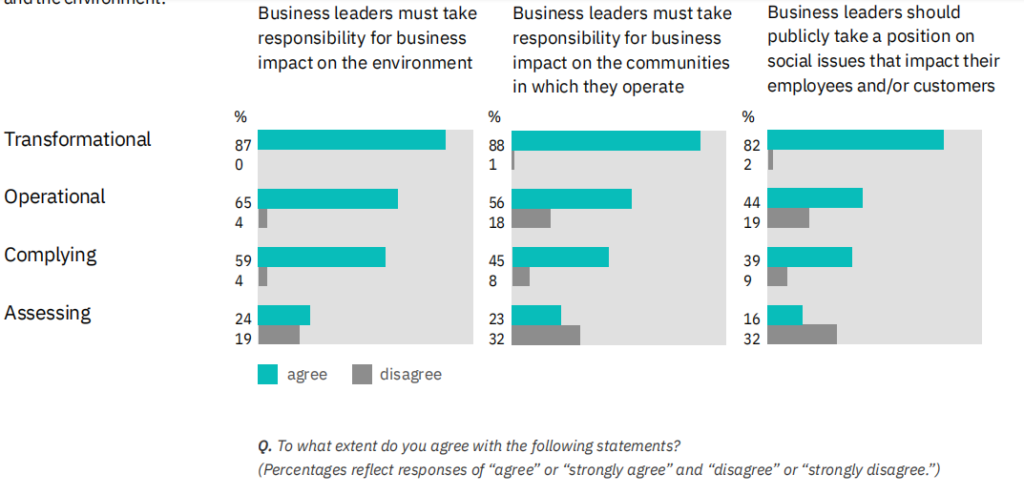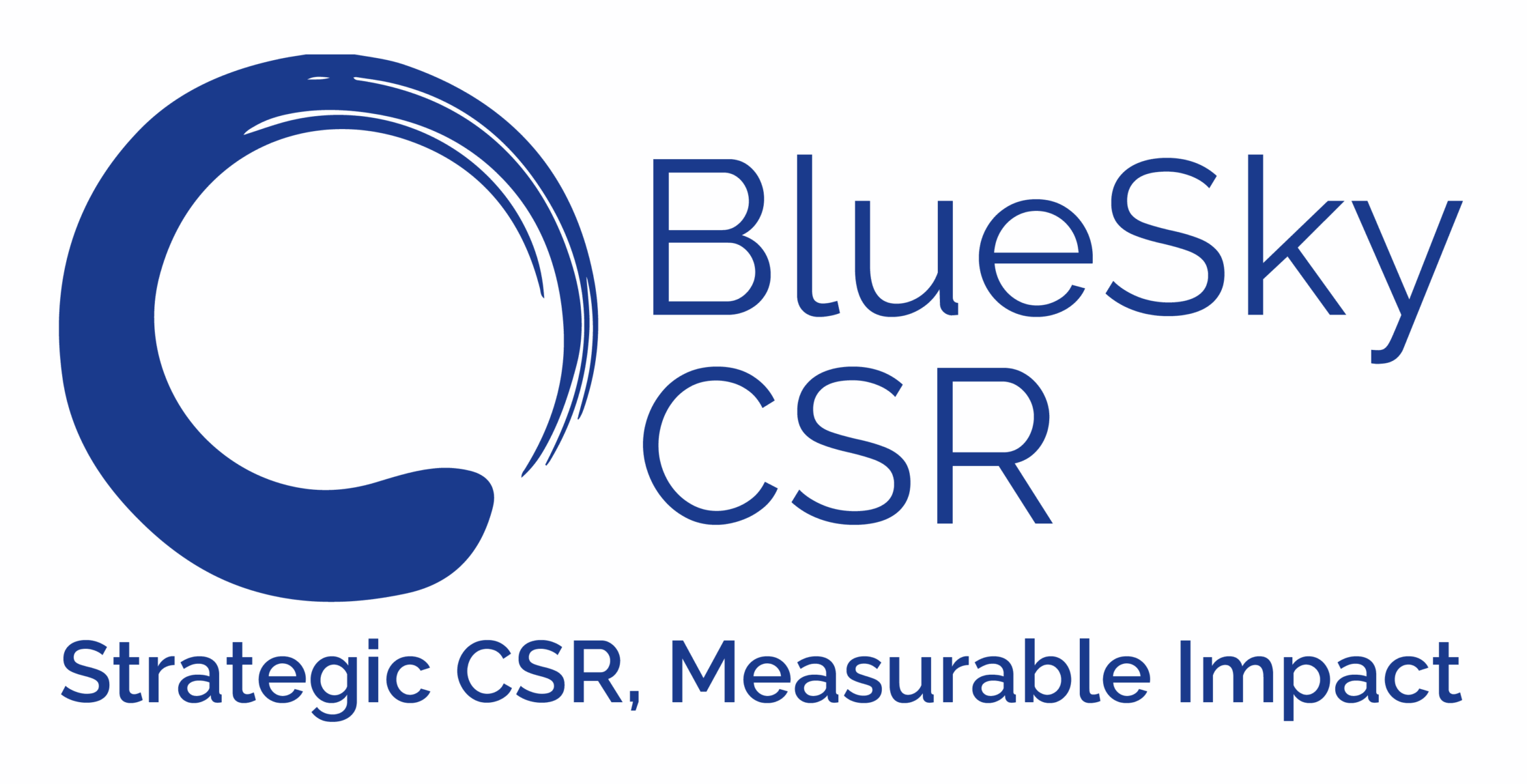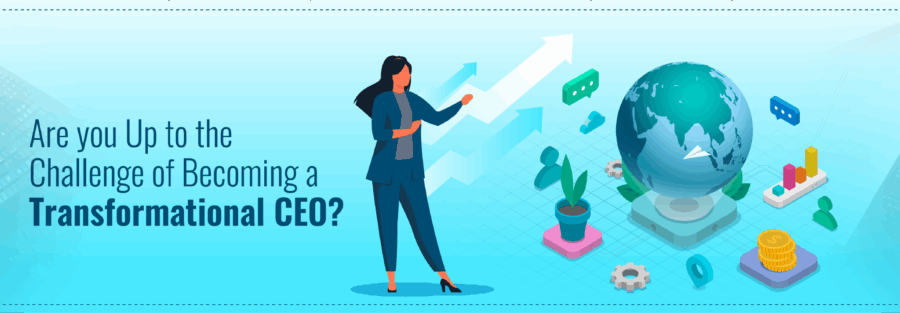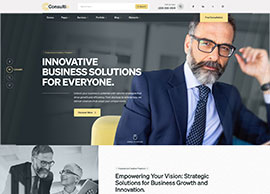There are CEOs and then there are CEOs who are more than just CEOs. As CEOs around the world find their footing in the adoption of sustainable practices, some CEOs are seen to be making tangible progress while many are left having a hard time. The differentiating factor between the two is primarily the mindset with which sustainability is approached.
A study ( The CEO Study by IBM ) revealed the following CEO archetypes based on their sustainability investments:
- Assessing (15%): CEOs who perceive sustainability to be an expense and feel pressure to act around it.
- Complying (29%): CEOs who enact sustainable practices only to be compliant with regulations and mandates
- Operational (43%): CEOs who see sustainability as an opportunity to improve operational efficiency.
- Transformational (13%): CEOs who leverage sustainable practices as a business opportunity through which value can be created.

Among the four archetypes, the study found that transformational CEOs are far ahead of their peers in the implementation of sustainability and its outcomes. As seen in the figure below, they believe in taking a vested interest in their organization’s effect on the environment and communities, and believe in the importance of taking a stand on social issues. This allows them to not only reach their sustainability objectives but also enhance the revenue of the respective organizations

Organizations led by the transformational CEO archetype found themselves to be achieving higher early profit margins even amid disruptive market dynamics, thus indicating resilience
The opportunity to adopt this mindset in the Indian context presents itself in the form of the BRSR report. Although it was previously voluntary, this report has been mandated for the top 1000 listed companies for FY2021-FY2022. This reporting structure demands greater transparency and accountability of the organization’s leadership. Adopting the mindset of a transformational CEO and viewing sustainable reporting as an opportunity to create value will set apart the leaders of responsible businesses.
Amidst the trying economic and social happenings of the past 2 years, it has become more pertinent than ever to build resilient communities that minimize the damage caused by such circumstances. Sustainable practices can cater to that need by fortifying the foundations of individual organizations as well as overall communities. It is therefore important to adopt sustainable practices and contribute to the development of stronger national and global ecosystems.

















































